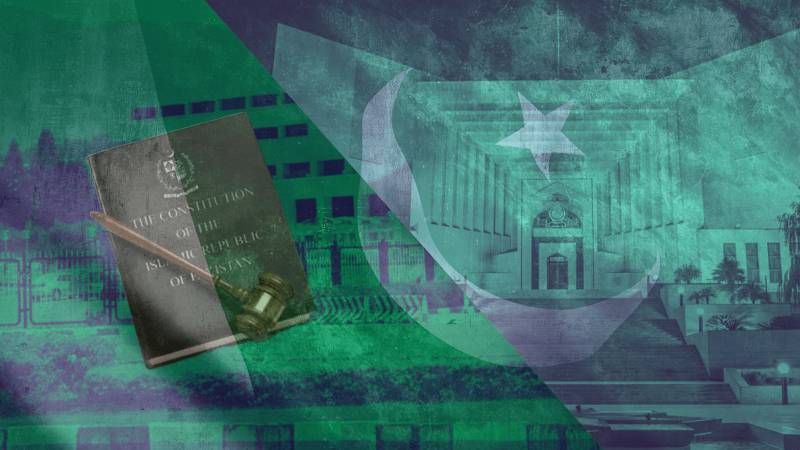
Four former lawmakers, including Balochistan National Party-Mengal chief Sardar Akhtar Mengal, former federal minister Dr Fahmida Mirza, National Democratic Movement (NDM) founder Mohsin Dawar and former senator Mustafa Nawaz Khokhar on Friday moved a petition in the Supreme Court, challenging the legality of the 26th Constitutional Amendment.
So far, around a dozen petitions have been filed in the Supreme Court challenging the 26th Constitutional Amendment, but none of them has been heard since a constitutional bench - as envisioned under the amendment - was not functional and thus, the cases could not be fixed. However, since the bench was formed earlier this week, none of the petitions have been fixed for hearing either.
In their petition, the four lawmakers urged the top court to term the amendment unconstitutional and illegal.
"Declare that the purported 26th Constitution Amendment Act 2024 was passed in a manner contrary to the Constitution and law and is thus, non est, void ab initio and has no legal effect, and to strike down all acts, decisions, notifications, proceedings or superstructure by any person, authority or body that is based on the same," the 24-page petition read.
It further urged the court to direct an independent inquiry into how votes were coerced and procured in Parliament in relation to voting for the amendment, "in particular, in relation to the factual averments in the instant petition."
The top court was urged to declare without prejudice, sections 7, 14, 17 and 21 of the act as "substantively ultra vires and void ab initio being violative of the independence of the judiciary that is a salient feature of our Constitution and to strike down the same, along with all acts, decisions, notifications, proceedings or superstructure by any person, authority or body based upon the same."
Further, it urged the court to declare, without prejudice, that sections 7, 14, 17 and 21 of the Act were incapable of being given legal effect due to impossibility and to declare that the so-called Judicial Commission and the so-called Constitutional Benches, and all their proceedings and acts, are non est, a nullity and void ab initio.
"In the alternative, and without prejudice, declare that 7, 14, 17 and 21 of the said Act are required to be interpreted harmoniously and in light of the salient and essential provisions of the Constitution guaranteeing the independence of judiciary and trichotomy of powers and to avoid conflict with the same; and make clarificatory interpretation of the same as indicated in Grounds S to W above."
It sought the top court's directions to declare section 27 of the Act as substantively ultra vires and void ab initio, arguing that it violates a salient feature of the Constitution: federalism, and strike it down along with any act or superstructure based thereon.
It further sought additional or alternative relief as this honourable Court may deem fit and proper;

